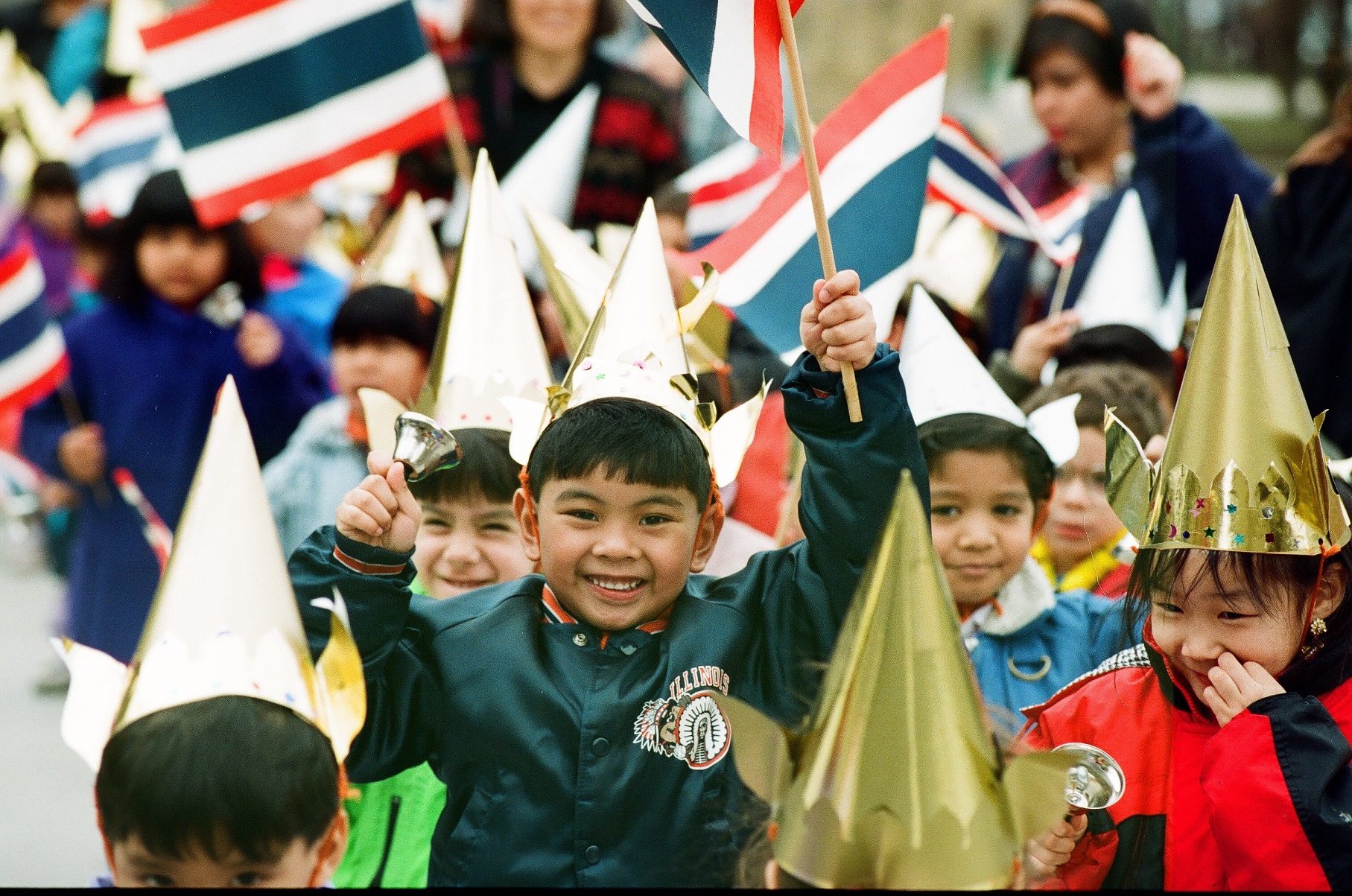
Children march in a parade to celebrate Songkran, the Thai New Year, at the Albany Park Community Center, 5101 N. Kimball Ave., Chicago, April 12, 1993. ST-11002573-0007, Chicago Sun-Times collection, CHM
April 13 marks the start of Songkran, the traditional Thai New Year. The holiday was Thailand’s official New Year until 1888 when it was switched to a fixed date of April 1. In 1940, the date of the New Year was changed again to January 1, and Songkran became a three-day national holiday held each April.
Thai immigration to metropolitan Chicago has mirrored national immigration patterns for this Southeast Asian population group. Few Thais came prior to the expansion of US immigration laws in 1965, but steady increases since the 1970s made Thais one of the ten largest Asian groups in the region by the end of the twentieth century with more than 6,000 counted in the 2000 census.
Thai nurses, among the first groups to arrive locally, hosted community gatherings in their homes during the early years and were instrumental in organizing the first notable public event—commemorating the king of Thailand’s birthday in December 1965. Community leaders founded the Thai Association of Greater Chicago in 1969, which incorporated as a nonprofit organization in 1982 and changed its name to the Thai Association of Illinois in 1989. The Thai Association serves both cultural and advocacy functions for the local Thai community and each year sponsors a celebration of the king’s birthday.
A significant number of Thais practice Theravāda Buddhism, along with Cambodians and Laotians. These three communities have established a number of Buddhist temples in the Chicago area, including Wat Phrasriratanamahadhatu (1992) in the Uptown community area, Wat Dhammaram (1976) near the suburb of Bridgeview, and Wat Lao Phothikaram (1982) in Rockford, Illinois.
As in other US cities, Thai settlement has dispersed throughout greater Chicago. Substantial residential presence can be found on the city’s North Side and in northern and southern suburban Cook County, with DuPage County claiming the next highest number of Thais.
Learn more about the history of Chicago’s Thai community in our Encyclopedia of Chicago entry.